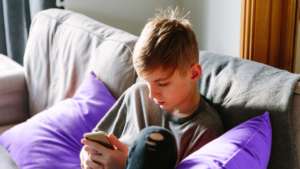
The ISPCC has welcomed the establishment of a new reporting service for individuals who have had intimate images of them shared without their consent.
Resources provided by Hotline.ie, the national centre for combatting illegal content online, have been enhanced to now include a reporting stream for intimate images shared without consent.
The new service has been established in response to the Harassment, Harmful Communications and Related Offences Act 2020, which provides for two new offences – namely where an intimate image of a person has been shared without their consent, with or without the intent to cause harm.
The ISPCC has previously highlighted to an Oireachtas Justice Committee the harm that can be caused where children and young people share intimate images without consent and the gaps which existed in the law.
ISPCC Chief Executive John Church said: “The ISPCC welcomes that this new service is now in place and will be expertly handled by the team at Hotline.ie. They have significant expertise in analysing such content and well-established reporting protocols in place with many of the online sites and services where such images can end up. This makes a significant difference towards ensuring swift takedowns.
“It is never okay to share such content. We know that children and young people can create self-generated sexually explicit material for many reasons, and we also know the panic and anxiety that can arise when these images end up in the hands of unintended recipients. Children and young people who turn to Childline for support regularly tell the service of the anguish they can experience when intimate images are shared without their consent. While the ISPCC is against criminalising children, it is becoming increasingly important for them to understand the law in this space, even though decisions to act are at the discretion of the DPP.
“Whilst the establishment of this service is to be welcomed, we must also look at what preventative measures can be put in place. Relative and relatable relationship and sexuality education with online safety principles embedded, delivered via the curriculum on a continuum basis at both primary and post-primary level, is a key component in preventing this behaviour occurring in the first instance.”
ISPCC Childline is proud to partner with Webwise, Hotline.ie and National Parents Council (NPC) Primary under the umbrella of the Irish Safer Internet Centre to provide a range of complementary online safety services. Irish Safer Internet Centre partners work towards a shared mission of making the internet a safer and more inclusive environment for children and young people.
Individuals who need to report instances of intimate images of them being shared without their consent can do so by visiting www.hotline.ie/report.
